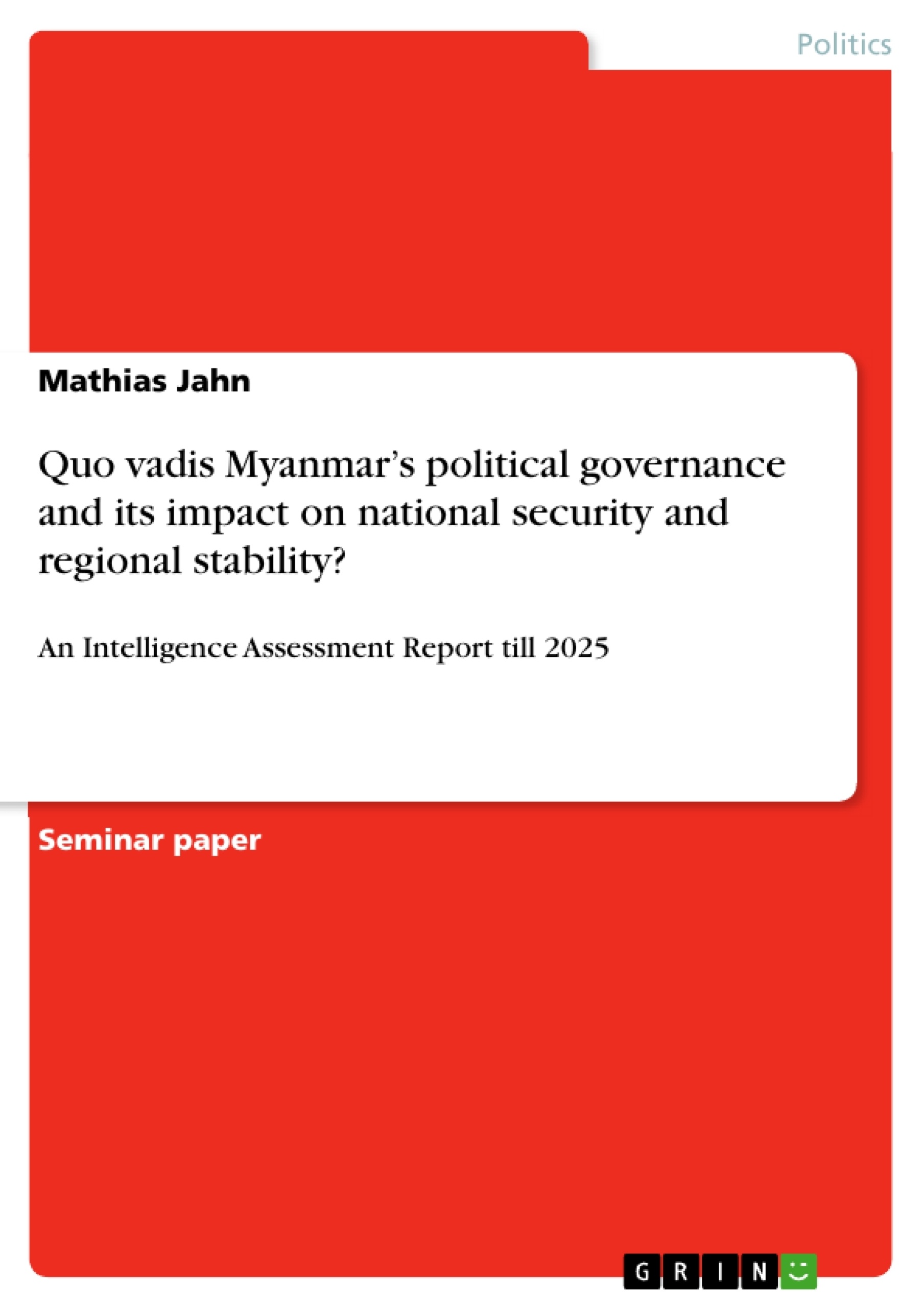The report seeks to apprise the Intelligence Service Coordinator of the German Federal Chancellery of 1) the trajectory of Myanmar’s (MMR’s) POLITICAL SYSTEM till 2025 and 2) the potential impacts on MMR’s NATIONAL SECURITY and Southeast Asia’s REGIONAL STABILITY.
Inhaltsverzeichnis (Table of Contents)
- PURPOSE
- BOTTOM LINE UP FRONT (BLUF)
- PRIMER OF CONFLICT CONTEXT & DEVELOPMENTS
- HYPOTHESES ON MYANMAR's GOVERNANCE
- IMPACT ON NATIONAL SECURITY & REGIONAL STABILITY
- SCENARIO PROBABILITY ASSESSMENT
- REFERENCES
Zielsetzung und Themenschwerpunkte (Objectives and Key Themes)
This report provides an intelligence assessment of Myanmar's political system, its trajectory until 2025, and the potential impacts on national security and regional stability in Southeast Asia. The analysis relies on open-source intelligence (OSINT) indicators and aims to inform the Intelligence Service Coordinator of the German Federal Chancellery.
- Myanmar's political system and its trajectory until 2025
- Potential impacts on Myanmar's national security
- Potential impacts on Southeast Asia's regional stability
- Analysis of competing hypotheses regarding Myanmar's future political landscape
- Assessment of risks and challenges posed by the evolving situation in Myanmar
Zusammenfassung der Kapitel (Chapter Summaries)
The report begins by outlining its purpose and presenting a concise bottom line up front (BLUF) statement. This statement, based on a high-confidence analysis of OSINT indicators, suggests that Myanmar's military-led "State Administrative Council" will have established an authoritarian regime by 2025.
The report then delves into the context of the conflict in Myanmar, including the 2021 coup d'état, the ongoing civil war, and the negative impacts on various indicators like the Bertelsmann Transformation Index, the Global Peace Index, and the Fragile States Index.
Schlüsselwörter (Keywords)
Key terms and concepts explored in the report include Myanmar's political system, national security, regional stability, authoritarian regime, civil war, coup d'état, open-source intelligence (OSINT), State Administrative Council, National Unity Government, and the impact on major meta-political, -economical, and -security index rankings and indicators.
- Quote paper
- Dr. phil. Mathias Jahn (Author), 2023, Quo vadis Myanmar’s political governance and its impact on national security and regional stability?, Munich, GRIN Verlag, https://www.hausarbeiten.de/document/1359671


